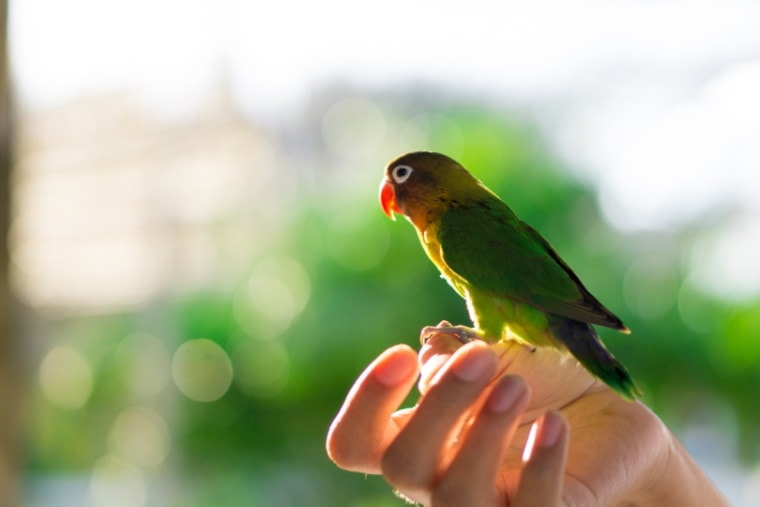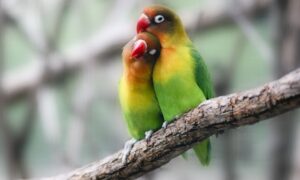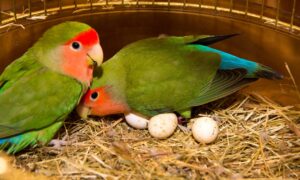Are Love Birds Friendly? Understanding the Social Behavior of Pet Lovebirds
Introduction
Lovebirds, known for their vibrant plumage and affectionate nature, have gained popularity as delightful companions in the world of pet birds. Their name itself suggests a loving and affectionate disposition, but are love birds truly friendly pets? In this article, we will delve into the social behavior of pet lovebirds to help you understand their friendliness, their needs for social interaction, and how to nurture a loving bond with these charming avian companions.
The Nature of Lovebirds
The Affectionate Reputation
Lovebirds have earned a reputation for being affectionate and loving birds. They are known for forming strong bonds with their owners and displaying behaviors that reflect their name. However, it’s essential to understand that their level of friendliness can vary from bird to bird.
Variability in Temperament
Like any pet, lovebirds have their personalities. Some may be naturally more outgoing and affectionate, while others may be reserved or shy. The age, socialization history, and individual experiences of a lovebird can influence their temperament.
Pair Bonding
Lovebirds are often seen forming strong pair bonds with their cage mates or human companions. They enjoy preening their bonded partner, cuddling, and engaging in mutual feeding behaviors, which are heartwarming signs of affection.
Social Needs of Lovebirds
The Importance of Social Interaction
Lovebirds are highly social creatures, and they thrive on interaction with their human caregivers or other lovebirds. Neglecting their need for socialization can lead to loneliness and behavioral issues.
Providing Companionship
If you have a single lovebird, consider getting them a companion. Lovebirds are less likely to become lonely or stressed when they have a fellow feathered friend to share their days with. However, introducing new birds should be done carefully to avoid aggression.
Enriching Social Activities
Engage in interactive activities with your lovebird, such as talking to them, offering toys, and allowing them to explore outside their cage under supervision. These activities help strengthen the bond between you and your feathery friend.
Nurturing Friendliness in Lovebirds
Patience and Trust Building
Building trust with your lovebird takes time and patience. Start with gentle interactions, offering treats, and avoiding sudden movements that may startle them. Over time, they will become more comfortable around you.
Positive Reinforcement
Reward your lovebird with treats and praise when they exhibit friendly behaviors, such as stepping onto your hand or shoulder. Positive reinforcement encourages them to associate your presence with positive experiences.
Respect Their Boundaries
It’s crucial to respect your lovebird’s boundaries. If they show signs of discomfort or aggression, give them space and time to calm down. Forcing interaction can lead to fear and mistrust.
Conclusion
So, are love birds friendly? The answer is a resounding “yes,” but their friendliness depends on various factors, including their individual temperament, socialization history, and the care they receive. Lovebirds have the potential to become affectionate and loving companions, provided they receive the right social interaction and care.
Understanding the social behavior of pet lovebirds is essential for fostering a harmonious and loving relationship with these charming birds. By meeting their social needs, building trust, and respecting their boundaries, you can ensure that your lovebird becomes a friendly and cherished member of your family.
In the end, the bond you share with your lovebird can be a truly heartwarming and rewarding experience, filled with the affection and love that these delightful birds are known for.
FAQs
1. Can I keep a single lovebird, or is it better to have a pair?
While single lovebirds can be kept as pets, they often thrive and are happier with a companion of their own kind. Consider getting a pair or providing plenty of social interaction if you have a single lovebird.
2. Are lovebirds noisy pets?
Lovebirds can be noisy at times, especially when excited or communicating with their cage mate. However, their noise level is generally lower compared to larger parrot species.
3. What is the lifespan of lovebirds?
Lovebirds have a lifespan of approximately 10 to 15 years, depending on their species and the quality of care they receive.
4. Are lovebirds easy to train?
Lovebirds are intelligent birds and can be trained to perform tricks and follow commands. However, training requires patience, consistency, and positive reinforcement.
5. Do lovebirds require a specialized diet?
Lovebirds should be provided with a balanced diet that includes high-quality pellets, fresh fruits, vegetables, and occasional treats. Consult with an avian veterinarian for specific dietary recommendations for your lovebird.
Read More:American Love Birds: A Guide to Avian Romance in the USA




















